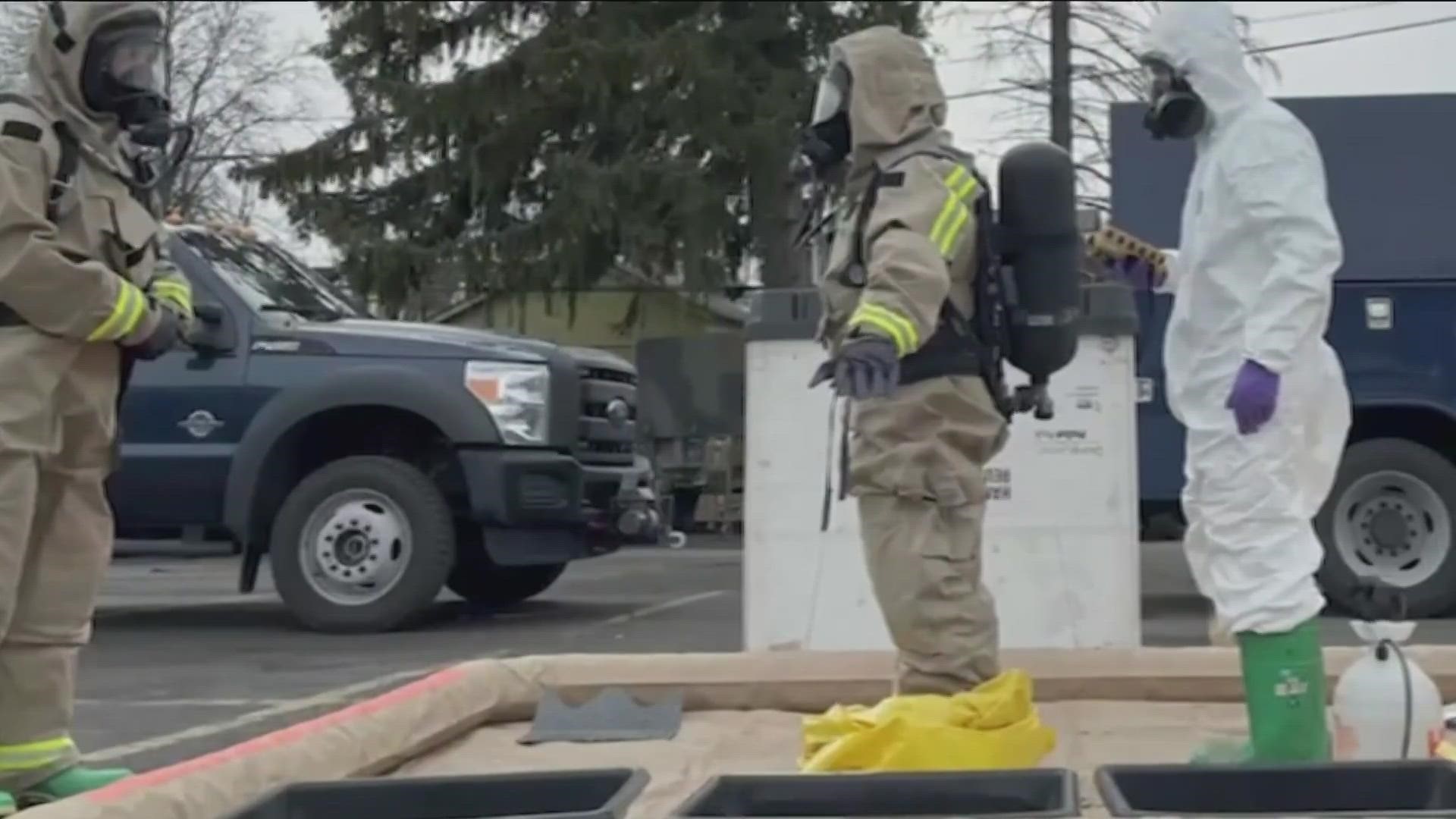EAST PALESTINE, Ohio — Health concerns by and for East Palestine residents continue after about 50 cars of a freight train carrying hazardous chemicals derailed in a fiery, mangled mess on the outskirts of the small village near the Ohio-Pennsylvania state line on Feb. 3.
During a press conference Tuesday, Ohio Gov. Mike DeWine said there was serious concern that one of the train cars was going to erupt into a "catastrophic explosion."
Per an order from DeWine, rail operator Norfolk Southern Railway conducted a controlled release of vinyl chloride from five derailed cars to prevent a potential explosion. The release sent a massive plume of smoke into the skies above East Palestine.
An evacuation order for area residents was then lifted and village residents returned to their homes.
"No one went back within that area or was allowed back in that area until they could come back and tell us that the monitoring was consistently good," DeWine said Tuesday. "In fact, the monitoring was consistent with what it was prior to the actual train crash."
DeWine said clean-up crews will remain in the area for the foreseeable future to remove further contamination and continue to test air, water and soil. They are also testing for multiple toxic chemicals that were stored in a train that did not have a high hazardous material designation.
Norfolk Southern Railway "was not required to notify anybody about what was in the railcars that were coming through our state," DeWine said. " This is absurd."
DeWine called on the U.S. Congress to revise how hazardous chemicals are transported across the country to avoid future crashes like this one.
The state departments of health and natural resources, as well as the Ohio EPA, said the remaining chemicals in question are not present at high enough concentrations in the air and water to risk human health. But regional waterways were exposed, they said.
"The spill did make it into the Ohio River during that initial slug, but the Ohio River is very large and a body (of water) that can dilute the pollutants very quickly," according to the Ohio EPA.
There is an estimated 3,500 dead fish "across that space," according to the Ohio Department of Natural Resources.
DeWine said East Palestine residents say there are still odd odors in the area, which has James Metcalf, an associate professor at Bowling Green State University who has conducted research on environmental toxicology, concerned.
Metcalf said that while the state has done an admirable job, any possible continued exposure to the chemicals will pose a very serious risk for people in the region.
"People are reporting smells, so it suggests maybe there still are chemicals lingering in the environment, and ultimately, studies will be needed long-term to work out if the chemicals are still there," Metcalf said. "Will they remain there, persist there, and if so, what the effects of those chemicals would be."
Metcalf also said the chemicals on the train could have long-term effects that lead to health issues, such as cancer.
But, the only way to know for certain what the long-term impact will be is to see what happens one year, 10 years or 20 years from now, he said.

